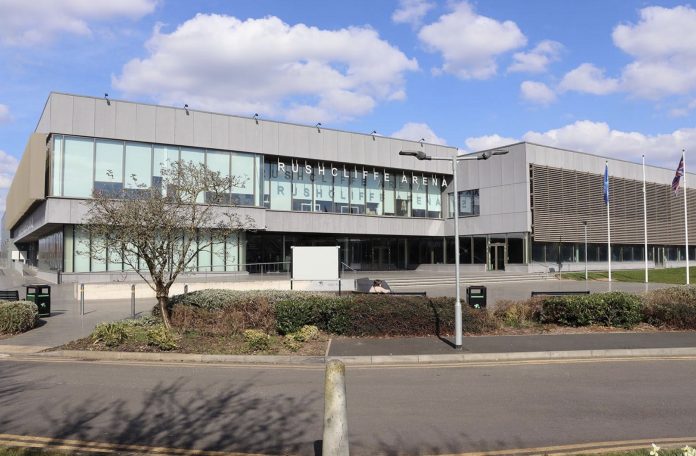Rushcliffe Borough Council has voted to back plans for major local government reorganisation across Nottingham and Nottinghamshire, supporting a proposal to replace the current two-tier system with two new unitary councils.
At a special meeting on Thursday evening, councillors agreed – after a long and often emotional debate – to support the “Greater Nottinghamshire” option, known as Option 1B, which would create a new Nottingham Council and a new Nottinghamshire Council covering the rest of the county.
A recorded vote at the end of the meeting showed 27 councillors in favour, five against and six abstaining, meaning the motion was carried.
The meeting was chaired by the Deputy Mayor in the absence of the Mayor, who had sent apologies along with several other councillors. Members who also sit on Nottinghamshire County Council declared an interest, having debated and voted on the same issue at County Hall earlier in the day, but confirmed they were approaching the borough debate “with an open mind”.
Rushcliffe leader Councillor Neil Clarke, who led the report, told members the reorganisation was “probably the single most important issue to affect the residents of Rushcliffe for over 50 years” and one that could shape services “for the next 50 years”.
He said the council’s submission was the culmination of “an immense amount of work” by officers both within Rushcliffe and across Nottinghamshire, and thanked the Chief Executive and staff for delivering such a complex piece of work in a short timescale.
Summarising the case for Option 1B, Councillor Clarke said the proposal would:
Replace nine existing councils with two unitary authorities – Nottingham Council and Nottinghamshire Council – so residents would have “one council for everything local”.
End confusion over which tier delivers which service and deliver “safer, simpler, stronger” governance.
Introduce neighbourhood committees for populations of around 30,000–50,000 to give communities a stronger local voice and more influence over priorities and funding.
Deliver joined-up services where residents “tell their story once” and councils respond “quickly and seamlessly”.
Enable a “digital first” approach using data, automation and AI to anticipate needs and improve outcomes.
Position Nottingham as a national and international hub for universities and innovation, with Nottinghamshire focusing on clean energy, advanced manufacturing and agri-food, unlocking growth through the East Midlands Freeport, rail and road corridors and the STEP fusion project.
He said the financial case was “complicated” but based on evidence and external analysis, with headline figures showing:
£122m of annual savings by year three,
rising to £235m per year by year five,
a payback period of around 1.34 years,
and a “low risk, high confidence” assessment backed by consultants PWC and CIPFA.
However, he cautioned that large reorganisations often cost more than expected and said “we have to use the figures on the table now”.
Under the proposal, the total number of councillors across the new Nottingham and Nottinghamshire councils would fall to around 187, more than halving the current number across the city, county and districts. Clarke acknowledged this would “obviously increase the workload of each councillor”.
He also set out a provisional timetable:
Elections in May 2027,
the new councils becoming fully operational in April 2028,
and significant transitional work needed to ensure a “safe transition and continuity of services”.
He said the option best met government criteria on single-tier governance, “sensible geography”, financial sustainability and avoiding split boundaries, and aligned with national reforms on children’s services, housing and health integration, as well as the East Midlands Combined County Authority.
“This submission… is the best of the three options proposed and is the best for the residents and businesses of Rushcliffe,” he concluded, moving the recommendations with a tweak to ensure the proposed task and finish group on governance included representation from all parts of the council.
Councillor Abby Brennan seconded the recommendations, reserving her right to speak later, and later told the meeting she would support Option 1B as “the best option available” for Rushcliffe, despite there being little enthusiasm in the room for any form of reorganisation.
Amendment criticises process and lack of mandate
An amendment tabled by Councillor Burch was accepted by Councillor Clarke and became part of the substantive motion. It records the council’s view that:
the process has been foisted on local authorities at pace,
local government reorganisation was not explicitly in the Labour Party’s election manifesto, and
there is deep concern that no clear democratic mandate from the electorate has been secured for such far-reaching changes.
Councillor Burch described the process as “a farce”, saying “nobody voted for this” and arguing that governments derive their mandate from manifesto pledges. He nonetheless said he would vote for Option 1B as “the least worst option” that offered the most coherent geography for services such as waste and highways, and broadly separated a more urban and a more rural authority.
He also revisited earlier debates on reorganisation, accusing senior Conservatives of “mass amnesia” and pointing out that in 2018 a group of Rushcliffe borough councillors who were also county councillors had supported a motion at County Hall calling for a single unitary authority for all of Nottinghamshire including the city, and had then commissioned consultants and preliminary work on that model.
Opposition concerns: ‘tokenistic’ neighbourhoods, planning and democratic deficit
Councillor Thomas said she could not support the Greater Nottinghamshire proposal, arguing that:
It “rehashes” and effectively preserves the two large existing councils under new names, rather than driving genuine improvement.
Simply morphing Nottinghamshire County Council and Nottingham City Council into two new unitaries was “not conducive to improvement”.
The proposed names, “Nottingham Council” and “Nottinghamshire Council”, still leave residents confused over who does what.
She criticised the lack of detail on neighbourhood committees, calling the ideas “tokenistic and badly thought through” and “very much like vague arm-waving”, with no clear maps, structures or terms of reference.
Planning, she said, was a crucial local function that required knowledge of specific places. She questioned how a councillor in Worksop could properly understand applications in the south of the county if they faced an 80-mile round trip to see sites on the ground. The proposal, she argued, failed to set out robust neighbourhood-based planning teams or area planning committees.
She reiterated her long-held belief that a single county-wide unitary would have been the best solution but said that, if ministers insisted on two unitaries, there should at least be a shared upper-tier structure running key countywide services jointly across Nottingham and Nottinghamshire on a cooperative, integrated model, instead of simply separating and disaggregating responsibilities.
Several other councillors echoed concerns about:
Loss of local knowledge, especially around planning and flood risk.
The risk of larger, more distant councils diluting community representation.
The lack of a clear guarantee of stronger local democratic structures for areas like West Bridgford, where there is currently no town council.
Some councillors called explicitly for any reorganisation to be accompanied by new town or parish councils, or robust area committees, to restore local voice and maintain the connection between residents and decision-makers.
Political tensions and Reform row
Politics also loomed large in the debate.
Labour group leader Councillor Jen Walker said ministers would ultimately decide on the shape of local government based on long-term financial sustainability, not on local political lines, and argued that all councils needed to become more resilient after “15 years of deep cuts and austerity-driven agendas”.
She accused the Conservatives of using reorganisation as a “political football” and said Rushcliffe’s Conservative administration had now “aligned themselves with the Reform-led council”, pointing to a local councillor’s recent defection from the Conservatives to Reform UK. She said this reflected a “creeping shift to the right” motivated by self-preservation amid “electoral oblivion”.
Labour would not whip the vote, she said, and members would be free to vote according to their assessment of what was best for residents.
Reform UK councillor Tina Solomon, who left the Conservative group, said she would support Option 1B but used her speech to strongly criticise how the council’s “Save Rushcliffe” petition had been handled. She said:
She had designed and printed every petition poster, staffed numerous stalls and counted signatures, with her name on every board.
She was then left off the platform when the petition was presented to an MP and had been removed from the petition website, which she called “absolutely disgraceful”.
She said the petition had been turned into “a party political asset” instead of a genuine cross-party initiative, but insisted her own decision was based on what was best for residents in terms of geography, service delivery and financial resilience.
Other councillors from across the chamber voiced frustration at what they saw as years of mixed messages on reorganisation, a lack of genuine cross-party discussion at an earlier stage, and the speed and top-down nature of the current process.
Reluctant support, abstentions and opposition
A number of members said they would support Option 1B reluctantly, describing it as:
“The best of a bad job”,
like “renewing your car insurance – you just choose the least worst option”,
or “the gold, silver and bronze” among unappealing choices.
Others said they would abstain, arguing that none of the three options on the table were acceptable and expressing concern that all would weaken local democracy and push decision-making further away from communities.
Several councillors said they remained strongly in favour of a single county-wide unitary, which had been explored in the past but ruled out under current government guidelines on size and geography. Some challenged whether those guidelines were really as rigid as suggested.
Those voting against the recommendation tended to favour either a single unitary model, a different configuration of boundaries, or a more robust commitment to new local democratic structures such as a West Bridgford town council and stronger area-based planning and decision-making.
Next steps
With the recommendations approved – including the amendment criticising the process and lack of clear mandate – Rushcliffe’s formal position will now be submitted as part of the wider Nottingham and Nottinghamshire local government reorganisation process.
Ministers will ultimately decide whether to proceed with reorganisation and, if so, which option to choose. If the Greater Nottinghamshire model is adopted, shadow elections are expected in 2027 with the new councils taking over in April 2028, subject to detailed implementation plans and further consultation on governance and neighbourhood arrangements.
At the close of the meeting, the Deputy Mayor thanked councillors for what he called a “good debate on a really important subject” before confirming the result of the recorded vote and bringing the special meeting to an end.









